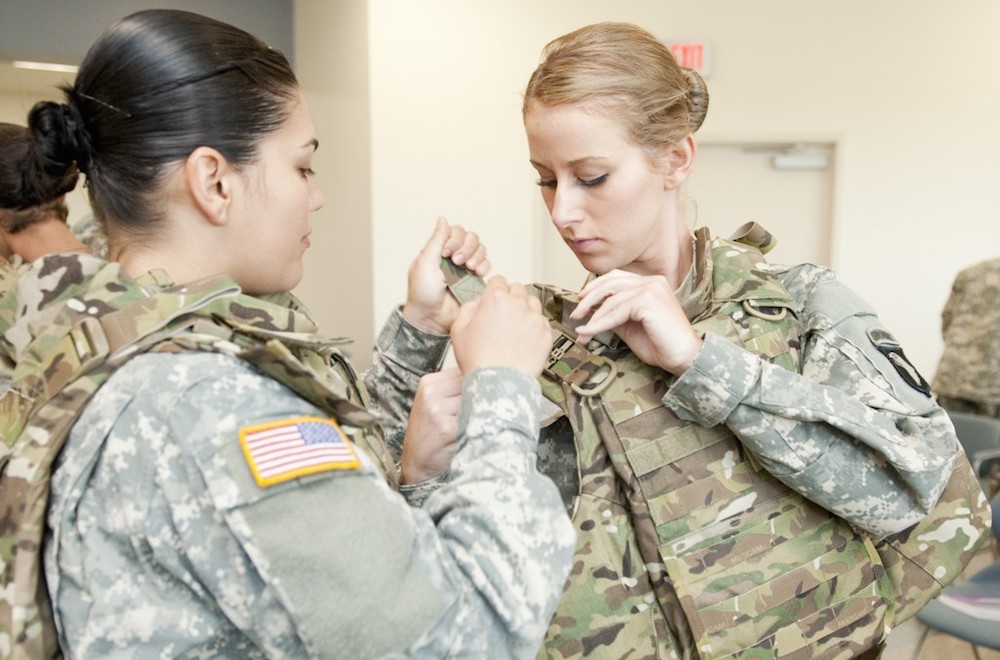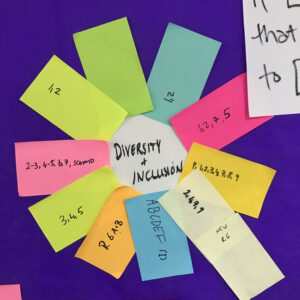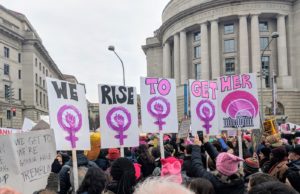Civil Rights Nominee Once Called Allowing Women in Combat ‘Laughable’
The Iraq War veteran nominated by Trump to the Equal Employment Opportunity Commission says his views have since changed. David Kamm / U.S. Army
David Kamm / U.S. Army
UPDATE: [Amanda Harrison, an active duty Army officer in a combat support unit and a onetime cadet at West Point remembers now-retired Lt. Col. Daniel Gade] as an encouraging mentor.
An Iraq War veteran nominated by President Donald Trump to the Equal Employment Opportunity Commission once called a military diversity commission “silly” and the idea of women in ground combat “laughable.”
Retired Lt. Col. Daniel Gade, who was wounded in action twice and lost his right leg, wrote on a military blog in 2011 that allowing women in combat positions would be “to the gigantic detriment of the warfighters and our national security.” Standards at military schools “WILL be decreased,” Gade wrote.
Gade told Reveal from The Center for Investigative Reporting that his views have changed since then.
“I now believe,” he said, “that anyone who can meet the physical and mental standards of the profession should be allowed into the profession in ground combat roles, and whatever role they qualify for.”
Trump nominated Gade to an agency that is dedicated to combating job discrimination and frequently takes on companies for segregating or failing to hire women. The five-person commission shapes federal civil rights policy and votes on whether to sue employers for discrimination. Gade’s Senate confirmation hearing is set for Tuesday.
On the blog BlackFive, Gade commented on a 2011 post titled, “Women in combat units – Oh! Hell! No!” He references a book and documentary chronicling a platoon’s deadly tour at a dangerous outpost in Afghanistan.
“The idea of women in that environment is laughable,” he wrote.
The comments were sparked by reports that the Military Leadership Diversity Commission, established by Congress, would recommend eliminating restrictions on women in combat.
“Does anyone other than the commissioners of this silly commission believe that adding a few women to the sand bag preparation team at the OP (outpost) would have really helped?” he wrote. “Or that the need for those women to get combat experience would outweigh the increased chances for many or all of the soldiers to go home in rubberized sacks?”
Gade told Reveal his views started changing later that year, when he began teaching at the United States Military Academy at West Point.
“As late as 2011, I believed women didn’t belong in combat arms and I stated that on a blog,” he said by phone from Washington, D.C., where he was preparing for his hearing. “When I got to West Point, I observed the wonderful women who are training to be military leaders, and sponsored some of them and mentored some of them, and have been very proud to see them succeeding.”
Amanda Harrison, an active duty Army officer in a combat support unit, told Reveal that while she doesn’t agree with what Gade wrote in 2011, “he’s 100 percent changed.”
Gade was a “sponsor,” or mentor, to Harrison at West Point, helping her through challenges, encouraging her to become stronger and eventually becoming “like my second dad.” She said Gade also supported another woman who became one of the first female infantry officers and Ranger School graduates.
“He just cares about cadets,” Harrison said. “Hopefully I showed him a different example and other women showed him a different example, and that helped him to change his mind.”
The Obama administration decided to lift the ban on women in combat in 2013, and announced in 2015 that there would be no exceptions.
Gade is better known as an advocate for limiting disability pay for veterans, arguing that the system creates dependency. That campaign is controversial and opposed by major veteran groups, as noted in a 2015 New York Times story on his efforts.
The National Women’s Law Center published a list of concerns about Gade’s nomination Monday, including the military blog comments it described as written by someone “who appears to be the same Gade.”
When told of Gade’s subsequent change of heart, Maya Raghu, the group’s director of workplace equality, said, “I’m glad to hear that his position has evolved over time” but “the concern is still there.”
“Women who pursue jobs in traditional male-dominated fields face some really significant barriers to entry,” Raghu said. “And frequently one of the issues that’s used against them is that they don’t meet particular physical standards or qualifications.”
Raghu said she hoped senators would probe Gade’s positions on civil rights issues.
“His record,” she said, “gives us very little indication of his views on a lot of different employment discrimination issues.”
Your support matters…Independent journalism is under threat and overshadowed by heavily funded mainstream media.
You can help level the playing field. Become a member.
Your tax-deductible contribution keeps us digging beneath the headlines to give you thought-provoking, investigative reporting and analysis that unearths what's really happening- without compromise.
Give today to support our courageous, independent journalists.






You need to be a supporter to comment.
There are currently no responses to this article.
Be the first to respond.